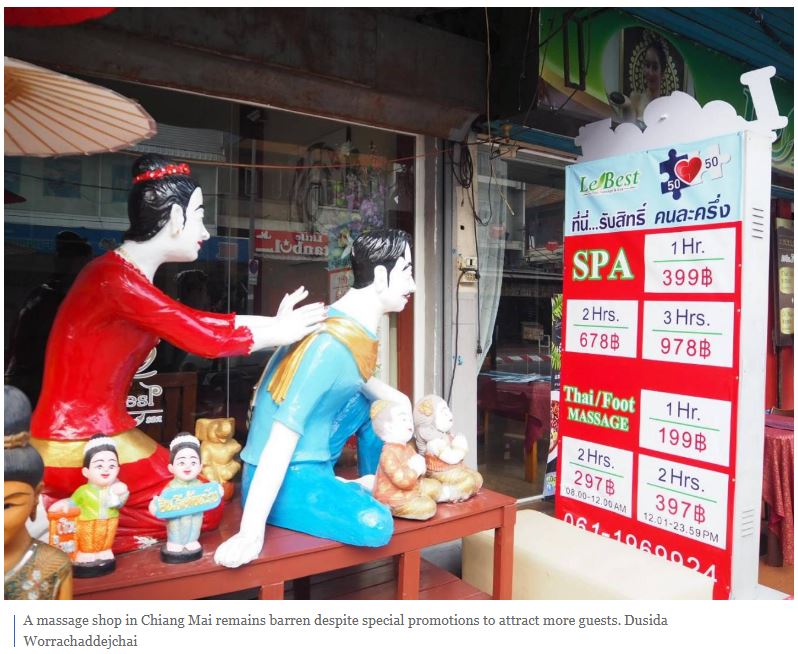Thailand: Spa group asks for salary aid
Some 80% of spa businesses nationwide have closed, prompting the Thai Spa Association to call for urgent relief aid from the government, especially in the form of a salary co-payment scheme.
Spas are slowly reopening, following a relaxation of lockdowns in many provinces, but the domestic market cannot completely revive the business, which relies heavily on inbound tourists, said Krod Rojanastien, president of association.
There are 8,000 spas legally registered under the Health Establishment Act of 2016, while the number of licensed workers in spas is 300,000, of whom 80% are unemployed.
The outlook for the wellness segment faces grim prospects as 80% of 530,000 workers are losing jobs, he said.
According to the Global Wellness Institute, wellness tourism contributed 409 billion baht per year to the local economy in the pre-pandemic era, of which 30 billion came from the spa business.
To help preserve jobs for skilled workers, the association, which has 200 members, would like the government to consider supporting 50% of monthly salaries, capped at 7,500 baht, for 800,000 tourism workers for 6-12 months.
“If operators are not granted co-payment schemes, the spa business is at risk of disappearing from Thai tourism,” Mr Krod said.
Apart from the lack of relief measures, spa operators were excluded from other stimulus schemes, such We Travel Together, which subsidised costs for hotels, airfare, foods and goods.
Onsens, which are also registered under the Health Establishment Act, cannot operate because of rules related to massage parlours, though onsen pools are for hydrotherapy. Massage parlours are not allowed to reopen yet.
He said there are no more than 10 onsen operators in Bangkok and Chon Buri, but all of them offer services with high levels of health and safety measures.
The association plans to discuss these issues with a subcommittee of the Centre for Covid-19 Situation Administration this month.
Mr Krod, who is also a consultant at Chiva-Som International Health Resort, said it will take around two years at the earliest to see improvements in the wellness industry, so Chiva-Som is diversifying to more health-related products and services.
The company plans to pivot to healthy food delivery and online consultation, especially for mental wellness, he said.
The maximum stays at Chiva-Som for locals were only three days, compared with foreigners who normally spent seven days. Chiva-Som is launching one-day packages and opening restaurants for every visitor, said Mr Krod.
The resort plans to keep in contact with foreign guests through online wellness sessions.
Last year the 54-room Chiva-Som had average occupancy of 20%, well below its goal of 70%.
Occupancy in January fell to 10% after the new outbreak.
Source: https://www.bangkokpost.com/business/2064383/spa-group-asks-for-salary-aid


 Thailand
Thailand




